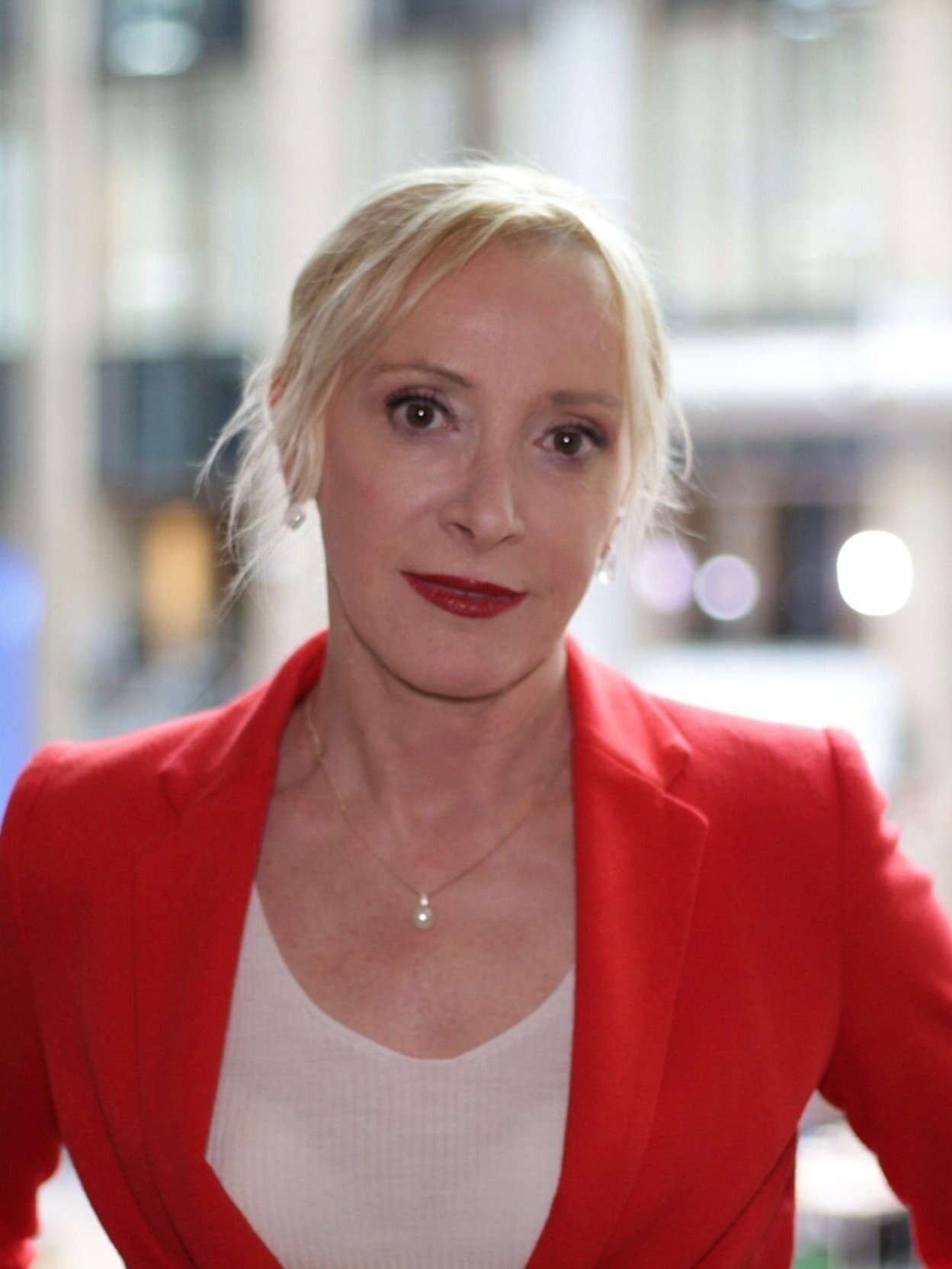On 3 May, World Press Freedom Day took place. This year marked the 31st World Press Freedom Day since it was proclaimed in 1993. As part of this year’s World Press Freedom Day, CFOM took part in acting as a co-organiser of the Academic Conference which was held on 4 May at Facultad de Comunicaciones, Pontificia Universidad Católica de Chile and Universidad de Chile.
CFOM also commemorated World Press Freedom Day in a number of different ways. They co-hosted an online panel event with the Bonavero Institute of Human Rights, University of Oxford that examined the threats that Strategic Lawsuits against Public Participation (SLAPPs) pose to media freedom and how legislation can be used to help tackle them.
The CFOM podcast also collaborated with the Balkan Free Media Initiative (BFMI) to deliver an episode focusing on threats to media freedom across Europe, with discussion in particular focusing on the dangerous role that disinformation can play. The podcast episode saw the CFOM podcast team interview Antoinette Nikolova, journalist and founder of the BFMI, and Peter Horrocks CBE, former Director of the BBC World Service.
International Director, William Horsley, also wrote a piece for The Conversation that examined the four threats to media freedom in the UK which include weaponisation of the law and also online harassment.
Online Panel Event: Strategic Lawsuits against Public Participation (SLAPPs) and the threat to Media Freedom
On 3 May from 13:00-15:00, CFOM and the Bonavero Institute of Human Rights hosted two online panel events that examined the threats that SLAPPs pose to media freedom and journalists. In the first panel, speakers included: Susan Coughtrie, Director of the Foreign Policy Centre and co-founder of the UK Anti-SLAPP Coalition; Gill Phillips, lawyer; Michelle Stanistreet, General Secretary of the National Union of Journalists; Sayra Tekin, Director of legal, policy and regulation at the National Union of Journalists. The session was chaired by CFOM’s Dr Irini Katsirea.

Susan Coughtrie

Gill Phillips

Michelle Stanistreet

Sayra Tekin

Dr Irini Katsirea
In the first panel, there was discussion surrounding the work of the National Union of Journalists (NUJ) and it was revealed that the NUJ is working on a new safety tracker that will aim to gather more data about incidents of ‘lawfare’ alongside protecting reporters from physical and online intimidation. Michelle Stanistreet stated that it is important for data to be collected to gain a clearer picture of the threat that lawfare poses to journalists:
“One of the things that we’re hoping that will change the culture a bit is that journalists will think to log that incident in their working life and see the value in being part of generating that data, so we’ve got a much clearer sense of the problem and any growth in that problem or spikes in particular places.”
Susan Coughtrie noted how many journalists have not spoken out in the past about receiving a SLAPP letter out of fear and therefore they engaged in self-censorship. She told us how there is much more engagement surrounding discussing SLAPPs in recent years and more SLAPP letters have been sent out. Gill Phillips also noted this to be the case, stating that: “There wasn’t the collective feel that there is today about the volume of what feels like this abusive litigation by particularly identifiable groups and organisations.”
The panel also addressed how law firms have played a role in issues concerning SLAPPs, with Sayra Tekin noting that: “Law firms have found how to navigate to the best advantage for wealthy clients to, and I quote, ‘reputation manage’ using the law. It’s a sanitisation mechanism being advertised. Kind of like tax loopholes and innovative taxing, it’s an innovative use of the law for those who have the money because as the law stands it is permitted.
As a consequence of this, Sayra Tekin stated that regulatory action is needed and the Anti-SLAPP Coalition has been working with the Solicitors’ Regulation Authority to take steps: ”If it’s going to affect your reputation as a solicitor to take on these cases you might think twice and if these cases aren’t taken on there’s going to be less prevalence of them.
With all of these issues, the panel also noted that the changing landscape of journalism is having an impact. Michelle Stanistreet stated how this has an impact when it comes to SLAPPs: “In the same way we’ve seen lots of cuts and restructures that have affected the number of journalists and their ability to do their job we’ve also seen parallel cuts in legal budgets in those publishers as well” which can make publishers, “for understandable reasons, more risk-averse. It’s really demoralising and frustrating for reporters caught in that…and absolutely does have a chilling effect”.
In the second panel speakers included: Dr Peter Coe, Associate Professor at Birmingham Law School and independent member of the Council of Europe’s Expert Committee on Strategic Lawsuits against Public Participation (SLAPPs); Charlie Holt, European Head of Global Climate Legal Defence (CliDef); Dr Rebecca Moosavian, Associate Professor in Law at University of Leeds School of Law; and Professor Paul Wragg, Professor of Media Law at University of Leeds School of Law. The session was chaired by Dr Damian Tambini, Distinguished Policy Fellow at London School of Economics.

Dr Peter Coe

Charlie Holt

Dr Rebecca Moosavian

Professor Paul Wragg

Dr Damian Tambini
The second panel event focused on the role that legislation can play in trying to tackle SLAPPs. There was discussion surrounding the recent amendment to the Economic Crime and Corporate Transparency Act 2023 that was designed to tackle SLAPPs, but according to the panel lacked teeth and did not do enough to offer protections. They highlighted the fact that the amendment did not remove the subjective test which means that the intention of the filer is taken into account as opposed. They stated that an objective test to define a SLAPP would be more effective.
CFOM Podcast Episode
CFOM also hosted a podcast episode with the Balkan Free Media Initiative (BFMI) that focused on media freedom in Europe, particularly focusing on the threats to media freedom in Eastern Europe. Produced by Anna Jones and presented by Dr Gemma Horton, the podcast episode explored the various threats that journalists are facing in the work that they undertake. Antoinette Nikolova, Founder of the BFMI and journalist, and Peter Horrocks CBE, former Director of BBC World Service spoke on the podcast about the work of the BFMI and what led to its founding in 2021. Discussion focused on disinformation and, with 2024 being a big election year in many countries, the concerns that this raises. Peter and Nicolette spoke about how disinformation is funding and the consequences that this has on countries. They also spoke about how we can tackle disinformation and the important role that student journalists can play in helping to achieve this.
Antoinette Nikolova, Founding Member and Director BFMI
BFMI was founded in 2021 by Antoinette Nikolova, a veteran journalist and broadcaster from Bulgaria with over twenty years of experience reporting from Brussels and the Balkans. Nikolova had witnessed first-hand the increasing threats to free speech in the region having twice been removed from her position at state-backed news agencies in Bulgaria for unbiased political reporting. Such practices had become commonplace in the region, but were largely being by policymakers in Brussels and further afield.
A longtime special envoy and correspondent from Italy and the EU, Antoinette Nikolova began her professional career following the war in the former Yugoslavia. She has since worked for a host of international news organisations for the last 20 years including Deutsche Welle International, News Corp television stations bTV and SkyItaly, RAI, the Bulgarian National, and Euractiv.
As a member of the Board of the Foreign Press Association in Italy, she campaigned for the integrity and independence of journalists in the country.

Peter Horrocks, Former Director of the BBC World Service and Advisory Member of BFMI.
Peter Horrocks CBE is a broadcast executive and a former Vice-Chancellor (chief executive) of The Open University. He enjoyed a distinguished 33-year career with the BBC, culminating in five years as Director of the BBC World Service. His other BBC roles included editor of flagship BBC programmes Newsnight and Panorama, Head of Multimedia, Head of TV News and Head of BBC Current Affairs.
Horrocks now sits at the Content Board of Ofcom, the UK communications regulator, and the Editorial Oversight Board of N1, the leading provider of independent news in Serbia and other countries in the Western Balkans.

